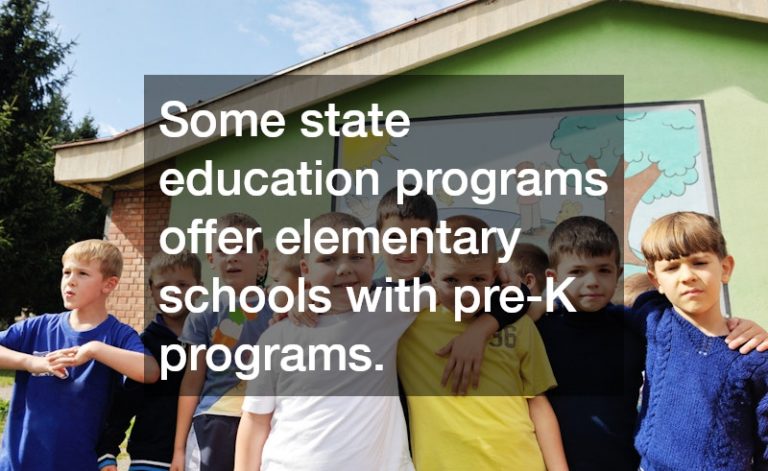
All parents are greatly invested in finding the best day schools for their children, such as the best preschools or best high schools, since a good education is the key to any child’s future success. This means that when the family moves to a new city or county, or when the child first becomes old enough for school, the parents can find the best schools around with an online search, followed up with personal visits to the most promising preschools or elementary schools. It is true that finding a good school will involve juggling a lot of factors, but a fairly straightforward process can be used to find the finest schools around, and parents may eliminate unsuitable schools fairly quickly. How might this be done? And what is the difference between public and private schools?
The Search for a Preschool
More American children aged three to five are enrolled in pre-K programs and preschools than ever before, even though preschool attendance is not actually mandatory. From 1990 to 2000 in particular, the rate of pre-K enrollment grew quite rapidly, and today, just over half of all American children in this age range are enrolled in pre-K programs of some sort or other. Older children in this range are especially likely to be preschool students; for example, in 2015, 87% of American children aged five were enrolled in pre-K programs. A preschool isn’t just a day care center; it is a dedicated academic setting where young students learn how to learn, and get used to following teacher directions while also taking part in extracurricular activities. All of this can easily prepare a child for elementary school.
Some preschools are private, and the rest are public. A private preschool is privately funded and run, hence the name, and these schools tend to be very well funded and have a lot of educational programs while also having expert teachers on staff. All of this makes private preschools quite appealing for parents who can afford the tuition. Still, a well rated and generously funded public preschool may be nearly as good in some regards. It will just take some extra effort to find them.
A preschool search may start online, and the more specific the query, the better, especially in larger cities such as Chicago and Miami. The parents should specify the local city name and their ZIP code to keep the results local, and specify whether they want to find public preschools, private ones, or even both. It may also help to look for the “best” or “top rated” preschools to eliminate any that are not well regarded. And if the potential child has a learning disability or other handicaps, the parents may want to specify a preschool that can accommodate such a special-needs student.
A whole list of pre-K schools will appear, and the parents can strike out unsuitable ones and compile a short list of promising schools. Now, the parents will tour those schools one by one in person, and interview the staff to review the school’s funding, offered educational programs, and the qualifications of the teachers there. Visiting in person is the best way to get a detailed impression of a given preschool, and during return visits to a school, the parents can bring along their child so he or she can also get an impression. After all, the parents will want to find a school where their will feel comfortable and relaxed.
Later Schools
Overall, a similar process can be used to find elementary, middle, and high schools, which may also be either public or private. When looking for public schools, it is important to only consider the best-rated and best funded ones in the area, for a quality education. Also, older students may have particular interests or aptitudes, and they and their parents can try to find a school that offers the right programs and classes, such as an arts program, science/engineering classes, sports teams, or even a marching band or a well-funded computer lab. An older student, such as one who needs to find a high school, can join their parents when interviewing the staff of a school, and ask their own questions for reference.


